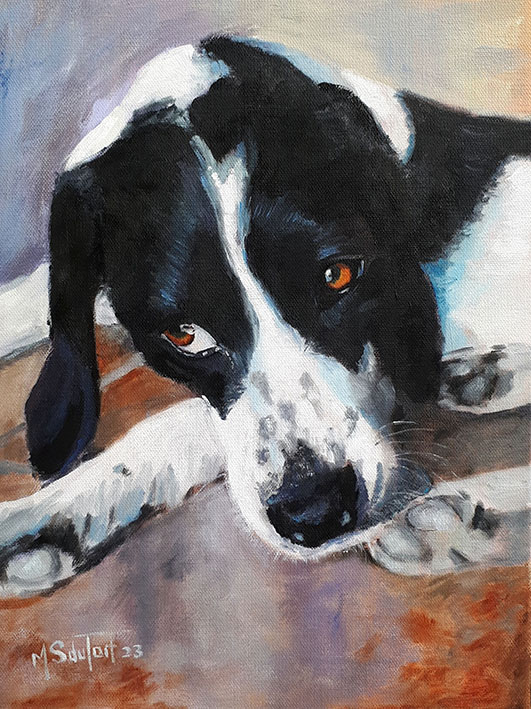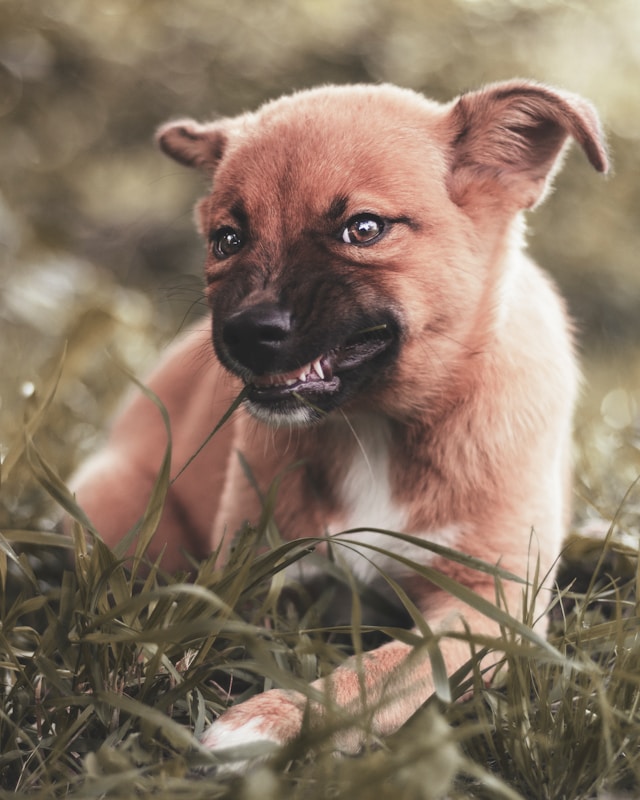Dogs are known for their playful antics and curious nature, often leaving pet owners puzzled by certain behaviors. One of the most common yet perplexing behaviors is their tendency to munch on grass. If you’ve ever caught your dog nibbling on a patch of green while out on a walk, you might have wondered: Why do dogs eat grass? This article explores the reasons behind this behavior, shedding light on the various theories and insights from veterinary experts.
Natural Instincts
One theory posits that eating grass is a natural instinct inherited from their wild ancestors. Canines are omnivorous by nature, and their ancestors consumed a varied diet that included plants. Some experts believe that dogs might be drawn to grass as a way of mimicking their wild counterparts, who would have eaten vegetation found in the stomachs of herbivorous prey. This instinctual behavior could explain why many dogs feel compelled to chew on grass.
Digestive Aid
Another widely discussed reason for grass consumption is its potential role as a digestive aid. Some dogs may eat grass when they experience gastrointestinal discomfort, such as bloating or nausea. The rough texture of grass might help induce vomiting, which can offer relief from an upset stomach. Interestingly, research suggests that a significant percentage of dogs that eat grass do not seem ill beforehand, indicating that this behavior might not always be linked to digestive issues.
Nutritional Deficiency
Some veterinarians propose that dogs may eat grass due to nutritional deficiencies. Grass contains various nutrients, including fiber, which can aid digestion. If a dog’s diet lacks sufficient fiber or other essential nutrients, they may turn to grass as a supplementary source. While this theory holds some merit, it’s essential for pet owners to ensure their dogs are receiving a well-balanced diet. Consulting with a veterinarian can help identify any potential deficiencies. Canine Cuisine ebook that has 130+ homemade dog food recipes.
Boredom and Behavioral Factors
Another possibility is that dogs eat grass out of boredom or as a form of entertainment. Dogs are social animals that require mental and physical stimulation. If they are not getting enough exercise or interaction, they may engage in various behaviors, including grazing on grass. This can be particularly true for dogs that spend extended periods alone or those that lack sufficient playtime. To mitigate this, providing ample exercise, interactive toys, and quality time can help reduce boredom-related behaviors. And give regular, but short, training sessions.
Taste and Texture
Dogs are curious creatures that explore their environment through their senses, particularly taste. Many dogs are simply attracted to the taste and texture of grass. Just like humans enjoy different flavors and textures in food, dogs may find the crunchiness of grass appealing. Certain types of grass, especially those that are fresh and tender, may have a more enticing taste for some dogs.
Behavioral Considerations
It’s also important to consider the psychological aspect of grass-eating. Some dogs may develop a habit of eating grass that becomes a comforting routine, similar to how some dogs might chew on toys or engage in repetitive behaviors. In these cases, grass-eating can be a self-soothing activity. If the behavior becomes excessive or compulsive, it may be wise to consult a veterinarian or a professional dog trainer.
When to Be Concerned
While occasional grass-eating is generally harmless, there are situations where it can indicate a more serious issue. If your dog consistently seeks out and consumes large amounts of grass, it may be wise to monitor their behavior. Signs of distress, such as repeated vomiting, lethargy, diarrhea, or a lack of appetite, warrant a visit to the veterinarian. It’s crucial to differentiate between normal grazing behavior and signs of illness.
Conclusion
In summary, the reasons why dogs eat grass are varied and multifaceted. From natural instincts and digestive aids to boredom and curiosity, this behavior reflects a combination of evolutionary traits and individual preferences. Understanding why your dog engages in this behavior can enhance your bond and provide insights into their health and well-being. Always keep an eye on your furry friend and consult with a veterinarian if you notice any concerning changes in their eating habits or overall behavior. After all, ensuring your dog’s health and happiness is the top priority for any responsible pet owner.



